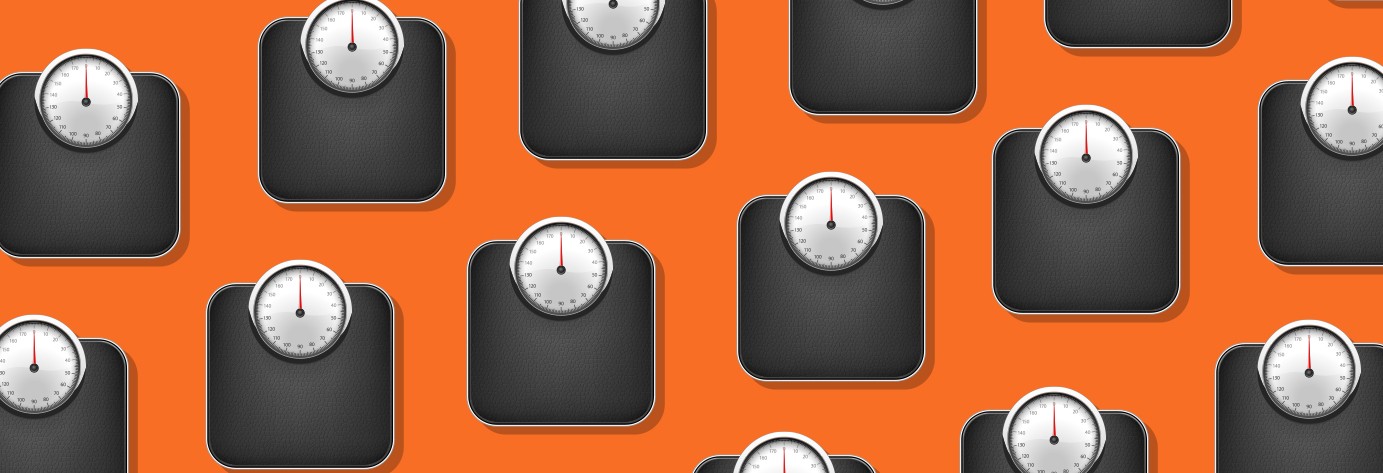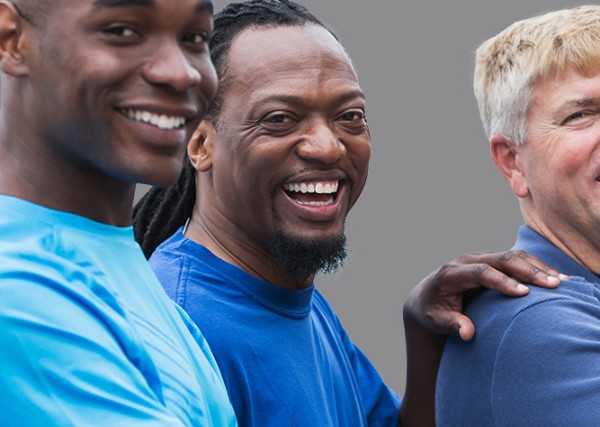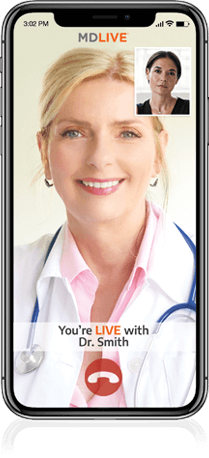your guide to weight loss, wellness, and healthy eating.
with advice from Dr. Cynthia E. Collins.
Each year – usually in January – about 45 million of us collectively decide to shed the extra weight with a new diet.1 But, most people aren’t sure where to start. So, we asked MDLIVE Clinical Medical Director Dr. Cynthia E. Collins to share her insights into healthy eating, popular diets, and how to live a healthier lifestyle.
- 1https://www.bmc.org/nutrition-and-weight-management/weight-management#:~:text=An%20estimated%2045%20million%20Americans,lifelong%20treatment%20and%20medical%20care.
Like many people, I gained a bit of weight over the holidays. What’s the best way to lose weight?
It’s not surprising that many people weigh a little more after the holidays. Have you noticed how almost every holiday is centered around food? If you have over-indulged or gained a few pounds due to colder weather, staying indoors more, and less activity, the key to shedding extra weight is to create a calorie deficit each day by burning more calories than you take in. Frequent movement, strength-building exercises, and drinking plenty of water while consistently reducing your overall calories helps you maintain that deficit.
While everyone is different, most people need to cut a minimum of 500 calories a day from their diet to lose about 1 pound per week. Calculate your needs here.
My friend follows the ‘keto’ diet, which works for her. But how do I know which diet is best for me?
The best diet is ultimately one that improves your health and one that you can stick to. Everyone is unique, so you may get better results from a different type of diet than your friend. The keto diet can help you lose weight, but it isn’t for everyone. You should always check with your doctor before starting any diet or exercise program.
Is there a specific diet you recommend?
Any diet can help you lose weight, but it’s vital that whichever one you follow improves your health and becomes part of your lifestyle. While I don’t recommend it to everyone, I like intermittent fasting (IF) because it’s an eating pattern rather than a specific diet. You designate a window of time to eat and a time to fast.
There are several ways to intermittent fast, but many people start with a 16:8 IF plan, which is fasting for 16 hours a day and eating only during the other 8 hours. A 5:2 plan (eat normally for 5 days, then substantially limit calories for 2 days) is another type. Whichever plan you decide, IF will help restrict snacking, overall calories, and lower insulin levels. But, again, check in with your doctor to see which is the best type of diet for you.
3 popular diets explained.
(Check with your doctor before starting any diet or exercise program.)
| Ketogenic diet |
Plant-based diet |
Intermittent fasting (IF) |
|
|---|---|---|---|
|
What is it? |
Puts your body into ketosis, a metabolic state that enables you to burn your fat stores for energy instead of carbohydrates. Daily calories are broken down into 80% fat, 5% carbohydrate, and 15% protein. |
Emphasizes vegetables, fruits, nuts, and beans and limits or eliminates meats, dairy, and eggs. |
Intermittent fasting (IF) is an eating pattern that restricts your overall calorie intake because you only eat during designated times and fast at other times. Popular IF plans include 16:8, 23:1, 5:2, and alternate day fasting. |
|
Benefits |
Effective for both fat and water loss. Studies show the keto diet reduces appetite by suppressing ghrelin, the hormone that makes you feel hungry.2 |
Studies show a plant-based diet can reduce your risk of heart disease, type 2 diabetes, and other chronic illnesses.3 |
Increases cell repair and human growth hormone (HGH) levels, encouraging fat loss and muscle gain. |
|
Things to consider |
Cutting out whole grains and many types of vegetables and fruits can make it challenging to eat enough micronutrients. To learn keto basics, click here. |
Avoiding animal products, including egg yolks, can create a B-12 and choline deficiency. |
Women may need different guidelines than men when it comes to intermittent fasting. Click here to see the differences. |
What should be in my cart at the grocery store?
Healthy foods like vegetables, fruits, lean meats, and good fats like avocados, olive oil, salmon, seeds, and nuts should be at the top of your list when food shopping. You know, all the foods around the store’s perimeter and not in the middle aisles. You should avoid snacks, processed, sugary foods, sodas, high fructose corn syrup, and fruit juices.
How do I stay consistent?
For any diet to stick, it must be a lifestyle change, not a temporary fix. And it’s all about your perception. If you think of the healthy foods you ‘get’ to have instead of seeing yourself as being deprived, you’ll be more successful. Think of your new lifestyle as an opportunity to try new foods, challenge yourself, look better, and feel better.
It also helps to have an accountability partner who can support your efforts. And remember to check in with your doctor before starting any weight loss plan. Through it all, don’t be too hard on yourself. Taking small steps and celebrating your successes along the way can help you stay consistent and inspired.
I like the idea of thinking of a diet as an opportunity. Any other tips you can share?
Sure. I often remind my patients not to expect immediate, drastic results. Following any diet takes discipline and time. It’s a journey. Before you start, make sure you feel well. If you need care, an MDLIVE board-certified doctor can help with on-demand care 24/7, or you can schedule a time that works for you.
And lastly, make sure you’re in a good headspace to start a lifestyle change. As I said, successfully following any diet depends on your mindset. If you need support and motivation, schedule an appointment with an MDLIVE licensed therapist.
Losing excess weight lowers your risk for obesity, type 2 diabetes, heart disease, sleep disorders, and many other chronic illnesses. Follow Dr. Collins’ tips for fitting a healthy eating plan into your lifestyle so that whichever diet you choose, you’re more likely to succeed.
Posted date: January 15, 2022





